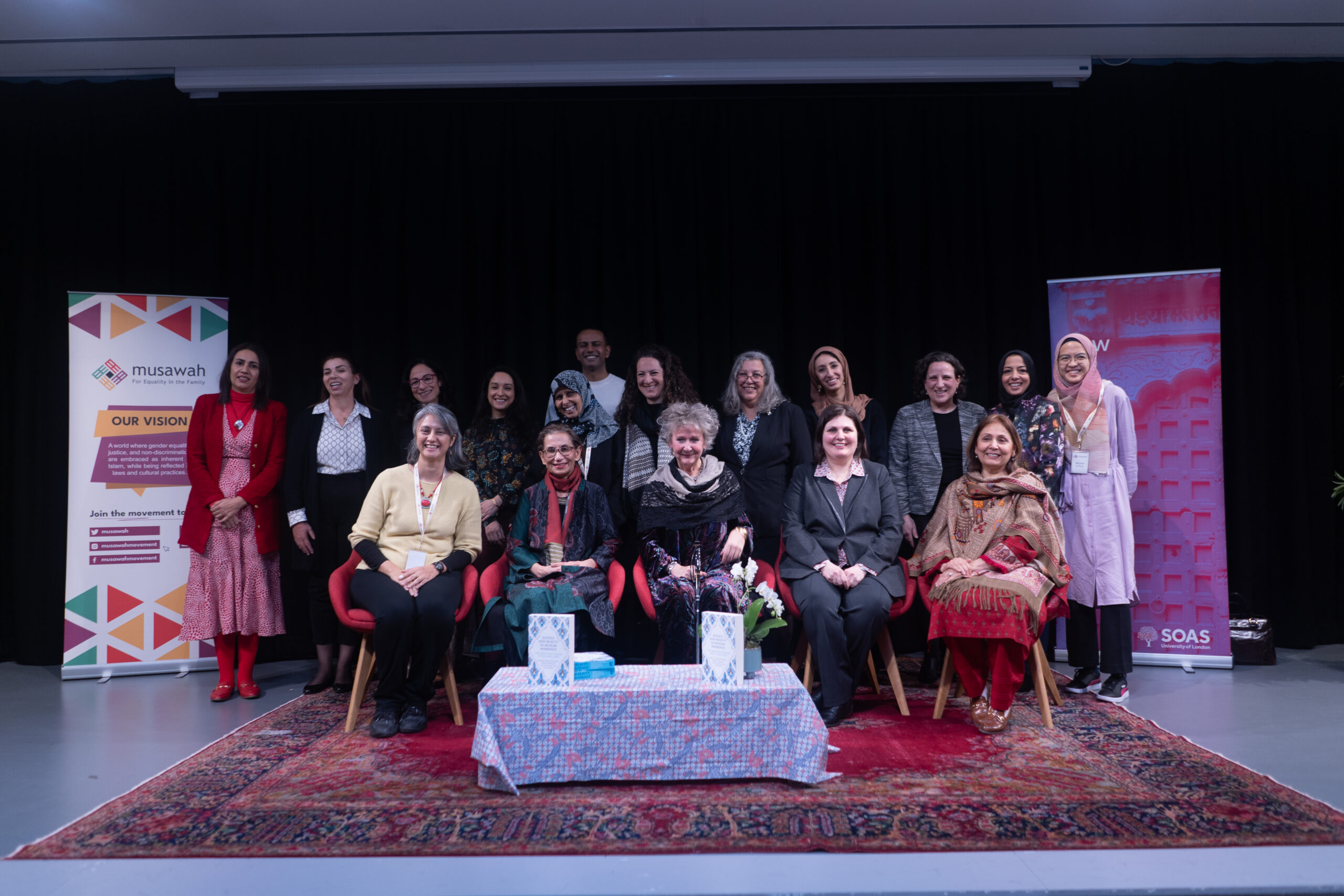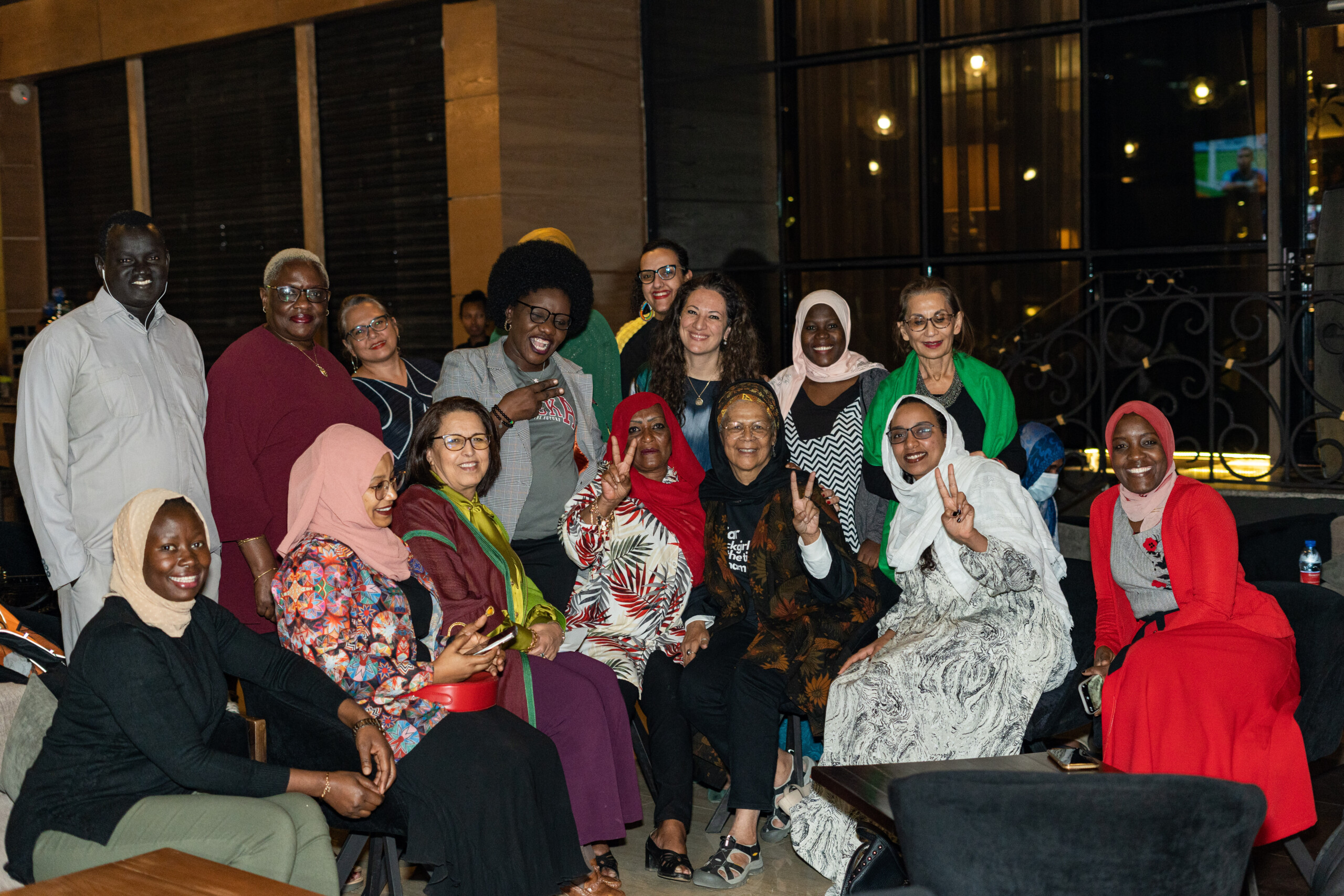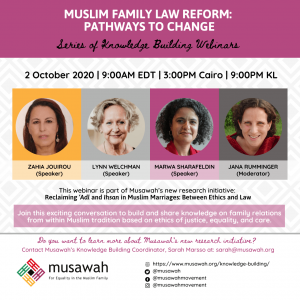Blog

5 Things We Learned at the ‘Justice and Beauty in Muslim Marriage’ Seminar
After nearly 8 years since the launch of Men in Charge? Rethinking Authority in Muslim Legal Tradition, Musawah made its return to SOAS, the University of London, for a public seminar and launch of its latest publication, Justice and Beauty in Muslim Marriage: Towards Egalitarian Ethics and Laws.

Reflecting on the Justice and Beauty in Muslim Marriage Book Launch in Addis Ababa, Ethiopia
On 6 Dec, 2022, Musawah organised a launch of the multi-authored book Justice and Beauty in Muslim Marriage: Towards Egalitarian Ethics and Laws in Addis Ababa, Ethiopia. The launch was held in conjunction with the transformational course, Islam & Gender Equality and Justice (I-nGEJ). In attendance were activists and advocates

WEBINAR: Conversations on Spirituality, Marriage and Family Relations in Islam
How can we build more just, equal, and spiritually nourishing Muslim marriages and intimate relationships? How does the Qur’an guide us in shaping this relationship that helps us realize our better selves?
In this webinar, Dr. amina wadud and Dr. Sa’diyya Shaikh will reflect on issues of gender justice and family

WEBINAR: In Search of an Ethical Framework for Gender Justice in Islam
What are the different approaches to Islamic ethics and how can we build upon them to develop an ethical framework that foregrounds gender justice?
In this webinar, Dr. Mariam Al-Attar and Dr. Fatima Seedat will explore different understandings of ‘ethics’ and shed light on the challenges of ethics as a

WEBINAR: Approaching The Qur’an Through Women’s Experiences
How do we understand the Qur’an’s ethical framework for gender relations through empirical lenses? In what ways have women’s experiences been silenced in the conventional readings of the sacred text, and how can we reclaim these voices in contemporary engagements with the Qur’an?
In this webinar, Dr. Nur Rofiah will

WEBINAR: The Prophet and Khadija: Partners in Marriage
What can we learn from the Prophet’s marriage with Khadija? How is it different from the marriage model we find today in most Muslim family laws and practices? And how can we reclaim it in the present time as a model for feminist Muslim masculinities?
In this webinar, Dr. Ababneh and

WEBINAR: Qur’anic Ethics on Marriage
What are the Qur’an’s teachings on marriage – both as an intimate human relationship and as the most basic social institution? How can we approach the verses on marriage from within the Qur’an’s ethical worldview? What are the implications of an ethically-oriented reading of the Qur’an for Muslim gender

WEBINAR: Ethics of iḥsan: Beauty and Goodness in the Muslim family
How are iḥsan and its concepts of beauty and goodness reflected in marriage and family matters in the Qur’an? What might the beauty and goodness represented in iḥsan mean in this context?
In this webinar, Amira will focus on the function and meaning of iḥsan and its concepts of beauty and

WEBINAR: ‘Your Wife Enjoys Rights Over You’… or Does She? Marriage and Ḥadīth.
What the Ḥadīth says about Muslim marriages in general and the Prophet’s marriages in particular?
In this webinar, Yasmin Amin mines the Hadith corpus for a framework for egalitarian Muslim marriage, using a methodology grounded in the Islamic interpretive tradition. She will focus, in particular, on Prophet’s Muhammad’s marriages to

WEBINAR: Hadith and Family Relations: Towards an Ethics of Reciprocity
How can Hadith be a source of egalitarian ethics? How can we develop and apply an ethical context-sensitive reading of the Hadith tradition that leads to gender-equal relationships? In this webinar titled “ Hadith and Family Relations: Towards an Ethics of Reciprocity,” Dr. Faqihuddin Abdul Kodir will explore these questions

WEBINAR: Muslim Family Law Reform: Pathways to Change
How can recent reforms of family laws in Muslim contexts provide ideas and strategies that can be used to advance gender justice?
In this webinar, Dr. Jouirou, Professor Welchman and Dr. Sharafeldin will explore ways in which contemporary family laws and legal practices have been reformed in recent years to

WEBINAR: Women’s Agency in Muslim Marriages: A Historical Perspective
What can we learn from historical practices of Muslim marriage? In this webinar titled “Women’s Agency in Muslim Marriages: A Historical Perspective,” Dr. Hoda El Saadi examines marriage practices in pre-modern Muslim Egypt, focusing on the 8th to the 18th century.

WEBINAR: Rethinking Fiqh Rulings on Marriage through Structural Ijtihad
How do we critically engage with the foundations of usul al-fiqh in the process of revisiting Muslim marriage? In this webinar titled “Rethinking Fiqh Rulings on Marriage through Structural Ijtihad,” Dr. Mohsen Kadivar revisits the theoretical and philosophical foundations that underpin classical fiqh rulings on marriage, and he proposes a

WEBINAR: Reclaiming Equality in Marriage: Problems and Solutions in Usul al-Fiqh
How can one construct an egalitarian jurisprudence (fiqh) of Muslim marriage that is authentic to the tradition and functional in the contemporary context? In this webinar titled “Reclaiming Equality in Marriage: Problems and Solutions in Usul al-Fiqh,” Dr. Nevin Reda explores this question and proposes a new, Islamic feminist methodology

